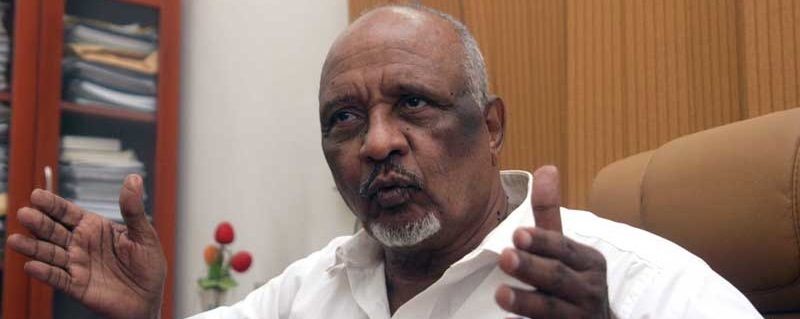Al Tayib Zein Al Abdin, a prominent figure in the Islamic Movement in Sudan, has welcomed the national political dialogue recently launched by President Omer Al Bashir, while cautioning that further gestures of goodwill are necessary from the president in order to ensure broader participation by the opposition.
President Bashir announced the dialogue initiative in late January calling for “a great leap that essentially leads to national loyalty rather than partisan loyalty.”
The initiative prompted mixed reactions from opposition parties, with some boycotting the initiative while others such as the Umma Party and PCP of Hassan al Turabi accepted to participate.
Though long associated with the Islamic Movement, Zein Al Abdin does not serve in an official capacity with either of the two main Islamist parties, the PCP or the ruling NCP, and he works as a professor of political science at the University of Khartoum.
In an interview with Radio Tamazuj yesterday, the Islamic leader said the call for an inclusive political dialogue by President Omer Al Bashir is a positive move toward resolving the crisis in the country.
However, the Sudanese scholar affirmed that the government must offer more guarantees to opposition parties and civil society. “You know, the opposition parties have had bad political experiences with the government, so the president has to fulfil some demands that are still being asked by the opposition,” he underscored.
President Bashir declared at the outset of the dialogue the release of political prisoners, the relaxation of restrictions on the press and political activists, and invited the armed opposition to take part in the upcoming political dialogue without exception.
However, leaders of opposition parties, most notably Al Sadig Al Mahdi and Hassan Al Turabi as well as Ghazi Salah El Din are still requesting a general amnesty, setting up of a neutral platform for the dialogue and economic reform as a prerequisite for dialogue, according to Zein Al Abdin.
“In my opinion, if the president fulfilled all these demands, all the Sudanese will agree to discuss how to rule the country ــ in general, the move is positive and a way forward but not yet complete,” he said.
Mixed signals
Some critics of the new dialogue have pointed out that after the announcement of the initiative, the Sudanese security service banned a symposium organized by the the Reform Now Party (RNP), an NCP breakaway group led by Ghazi Salah Edin Al Atabani. The symposium was to be held at Omdurman National University. The security service also seized a print run of Al Midan newspaper.
When asked about the conduct of security agencies in Sudan, the professor said some authorities work contrary to the decisions of the executive leadership.
“For instance, the recent decision should have been broadcast as a presidential decree and then tabled before the parliament for final approval, so that it could be implemented by the authorities,” he emphasized.
“If it was done this way, we would have avoided the cancellation of the RFP symposium as well as seizure of Al Midan newspaper shortly afterward,” he added.
He also contended that the dialogue requires international guarantees in order to secure the participation of the armed movements.
“There is need for guarantees from international and regional bodies, especially the African Union High Implementation Panel (AUHIP) chaired by former president of South Africa, Thabo Mbeki,” said the academic.
Yet he called on the Sudanese also to consider the political dialogue purely Sudanese and not to seek involvement of the international community.
Photo: Professor Al Tayib Zein Al Abdin (SudanNow/SUNA)
Related coverage:
Politics: Sudan opposition clarify boycott of ‘national dialogue’ (9 Apr.)




